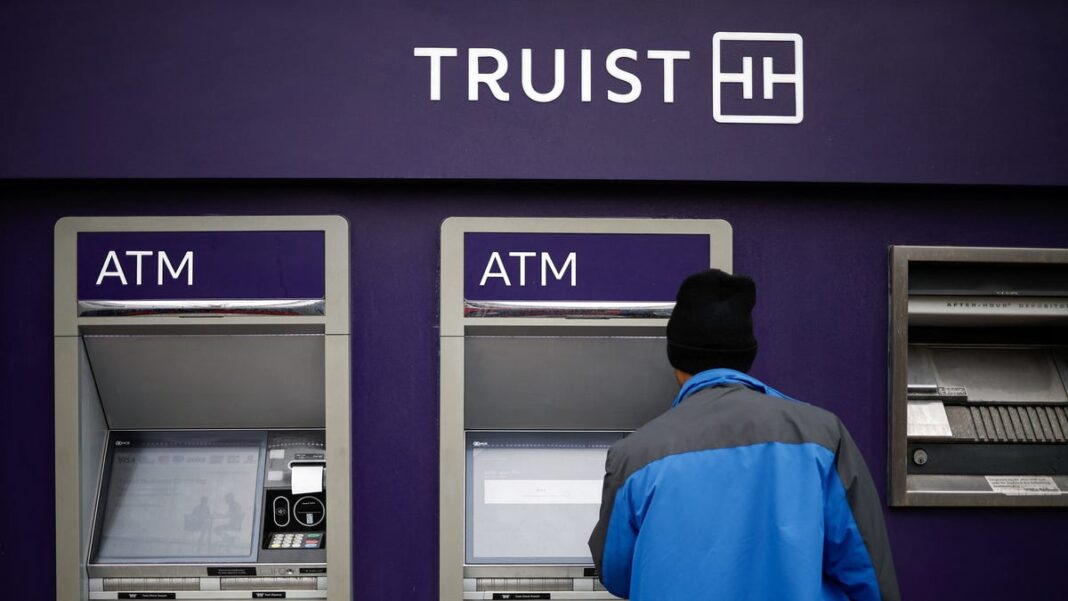When ‘Ho Ho Ho’ turns to ‘owe, owe owe’: 5 financial New Year’s resolutions for 2025
If you want to get back to reality quickly on New Year’s Day, just look at your credit card bill.
Many Americans are anxious about their finances, and this concern is likely to intensify in the new year, especially after a month of extravagant gift shopping.
You might not be shocked to learn what the most common financial New Year’s resolutions for 2025 are. These goals are essentially the opposite of the holiday spending habits that often lead to increased debt.
According to a survey by The Motley Fool, a finance and investing platform, “paying off debt” emerged as the leading financial resolution for 2025, with a particular focus on tackling credit card debt.
Similarly, a survey from Edward Jones, the investment firm, found that “building a savings account” took the top spot as well, with “paying off credit card debt” closely following in second place.
Another survey from WalletHub showed three main financial goals: Save more, spend less, and increase income. These resolutions encapsulate the desires of the American consumer.
Increase your savings or decrease your debt
Enhancing savings or cutting down debt are both excellent objectives, say financial advisors.
“Start building momentum, whether it’s increasing your savings or paying off your debt, depending on what you wish to focus on,” advises Robert Brokamp, a certified financial planner and senior advisor at Motley Fool.
However, deciding which goal to prioritize is a topic of ongoing discussion.
If you’re entering the new year with credit card debt, many financial experts encourage paying it off as soon as possible due to high-interest rates on credit cards.
On the other hand, some specialists advocate for prioritizing savings, particularly for emergencies.
“This is the primary topic I discuss with my clients,” explains Nicole Schelkopf, a financial advisor at Edward Jones. “It helps prevent falling into debt.”
While New Year’s resolutions often inspire optimism, many people will begin 2025 with strong determination. In the Edward Jones survey, 81% of Americans expressed confidence in their ability to stick to their resolutions.
However, the same survey revealed that over half of those who made resolutions for 2024 admitted they didn’t achieve them.
Nevertheless, let’s embrace a positive mindset. Here are five financial New Year’s resolutions for 2025, along with some advice on how to achieve them.
Create a budget
“With expectations to close 2024 with over $1.3 trillion in credit card debt, it’s clear we must improve our budgeting practices,” reports WalletHub.
Tracking your budget can be done using a spreadsheet to outline how to allocate your monthly income, or you can turn to a budgeting app. Brokamp recommends options like Budgets Are Sexy, YNAB (You Need a Budget), and Goodbudget.
Most major banks provide budgeting apps as well, and you can set alerts to notify you when you approach your budget limits, says Chip Lupo, a writer and analyst at WalletHub.
If you need a budgeting strategy, consider the 50-30-20 approach: Allocate half of your income for essentials, set aside 20% for savings, and allow 30% for discretionary spending.
Prepare for emergencies
Nevertheless, many financial advisers deem emergency savings to be the most crucial. This fund acts as a safety net for unexpected expenses, such as major home repairs, car replacements, or job losses. Lacking emergency savings can lead to unmanageable debt in times of crisis.
It’s advisable to have enough emergency savings to cover three to six months of your regular expenses, according to Schelkopf of Edward Jones.
An analysis from Investopedia indicates that a typical U.S. household should aim for at least $33,000 in emergency savings. Yes, that may seem like a significant amount.
Bankrate reports that over a quarter of American households lack any emergency savings. If you find yourself in this category, it might be time to initiate an emergency savings account.
Achieve 5% interest on your savings
Not too long ago, people found it challenging to discover savings accounts, CDs, or other investment options that offered a guaranteed 5% interest rate.
The financial landscape has shifted in recent years due to rising interest rates and inflation.
Currently, online banks—primarily operating without physical locations—offer an average savings account interest rate of around 3.9%, as reported by WalletHub. It’s also possible to discover rates exceeding 5%.
Reduce 25% of Your Credit Card Debt
Credit card debt is on the rise, with the average amount now around $10,870 per household, based on WalletHub’s findings.
Paying off this debt can be more challenging than expected. For instance, if you have a balance of $10,000 on a card with a 20% interest rate and aim to eliminate it by the end of 2025, you would need to make monthly payments of $926, according to a Bankrate calculator.
Instead, consider setting a more achievable goal to pay off 25% of your balance by 2025. If your household debt is about $10,000, this translates to monthly payments of approximately $225, as noted by Lupo.
Fortunately, the credit card sector provides an effective solution for managing credit card debt: zero-interest credit cards. These cards typically offer a promotional period of 15 to 21 months without interest charges.
“Shifting from a credit card that bears a 25% interest rate to a zero-interest card can significantly help you,” Brokamp advises.
Develop a Retirement Strategy
A significant number of individuals often overlook retirement planning. In the Employee Benefit Research Institute’s 2024 Retirement Confidence Survey, only 50% of workers indicated they had estimated their expected income needs for retirement.
A straightforward approach to retirement planning is to consult with a retirement planner. At the very least, experts recommend utilizing an online retirement calculator. If you hold a retirement or brokerage account, you can likely find a calculator available on its website.
“Start by assessing your current situation,” advises Brokamp. “Are you on track to retire when you intend to?”

